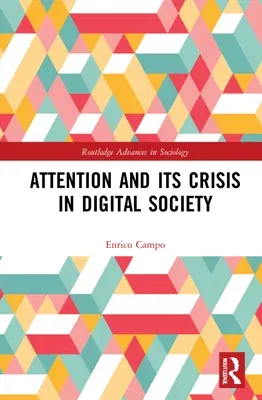Enrico Campo
(Author)Attention and Its Crisis in Digital SocietyHardcover, 9 May 2022

Qty
1
Turbo
Ships in 2 - 3 days
Only 3 left
Free Delivery
Cash on Delivery
15 Days
Free Returns
Secure Checkout

Part of Series
Routledge Advances in Sociology
Print Length
222 pages
Language
English
Publisher
Routledge
Date Published
9 May 2022
ISBN-10
1032112395
ISBN-13
9781032112398
Description
Product Details
Author:
Book Format:
Hardcover
Country of Origin:
US
Date Published:
9 May 2022
Dimensions:
23.39 x
15.6 x
1.42 cm
ISBN-10:
1032112395
ISBN-13:
9781032112398
Language:
English
Location:
Oxford
Pages:
222
Publisher:
Weight:
503.49 gm